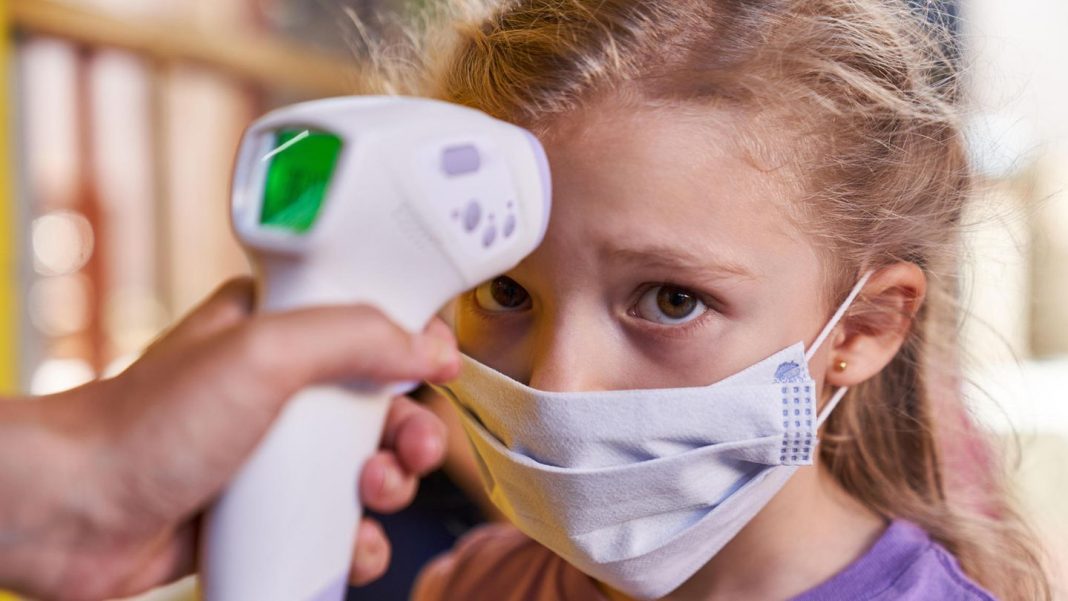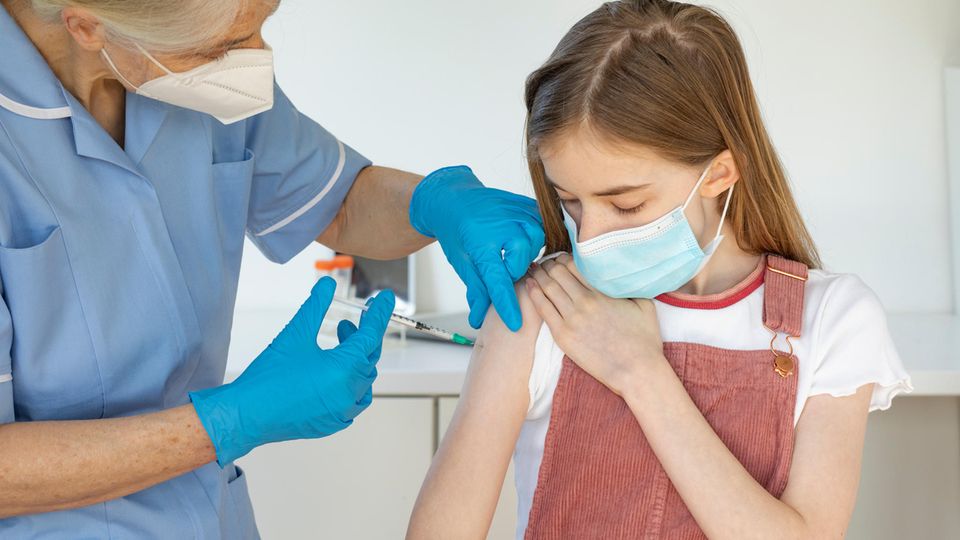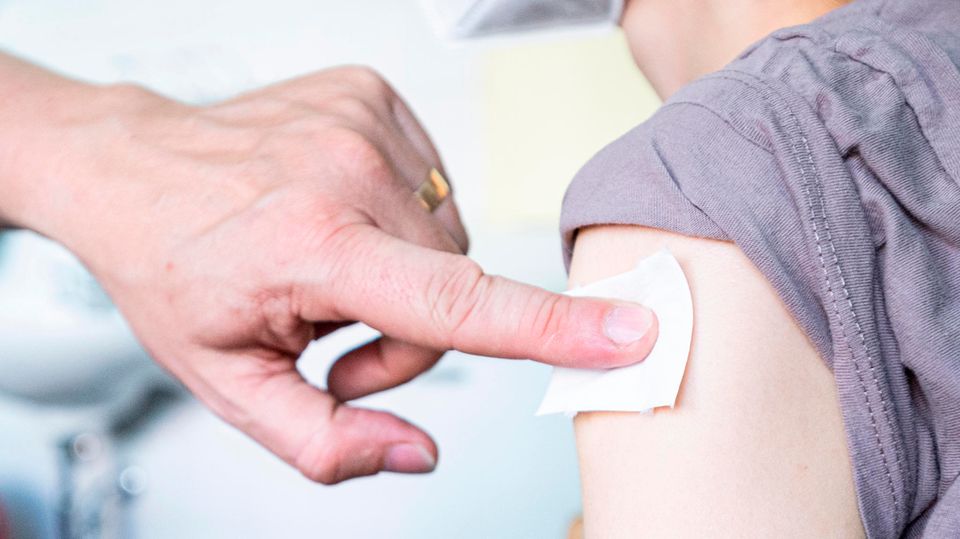Study
Children usually survive Covid – 19 within a few days – but this is not an argument against vaccination
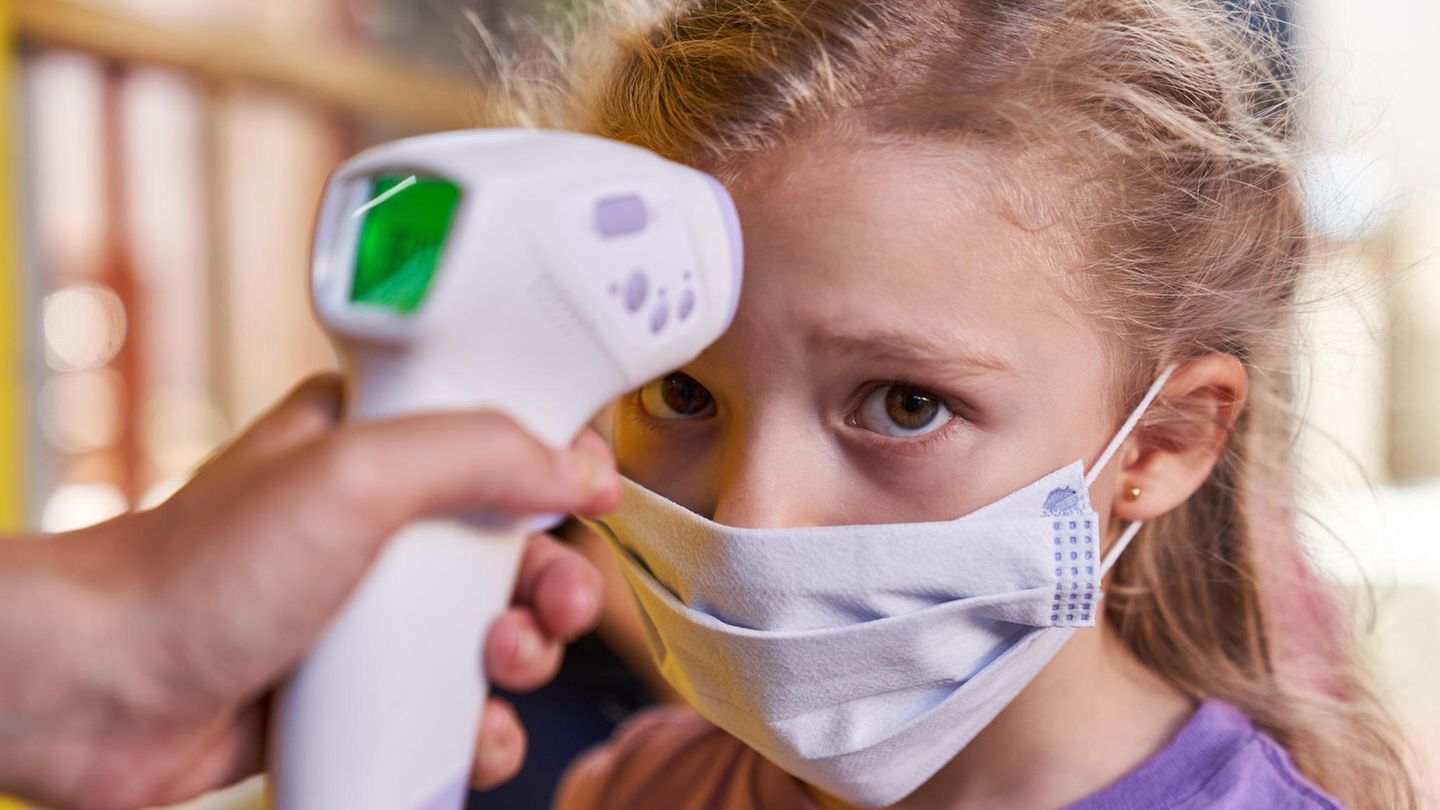
Fever is one of the most common corona symptoms in children.
© Robert Kneschke / Picture Alliance
For children, the risk of getting seriously ill with Covid-19 is low – this is confirmed by a new study from the UK. For most of them, the haunting was over after six days. However, this is not a reason to prefer infection to vaccination.
Children and corona, which has been a hot topic since the beginning of the pandemic. Your risk of contracting severe Covid-19 is considered low. But how big is the corona danger for children really? British researchers have studied symptoms and disease children of infected children in a study. The results have now been published in the journal “The Lancet Child & Adolescent Health”. According to them, most children are already healthy after six days. According to experts, this is not an argument against vaccination.
For the study, the researchers used data provided by parents or other education officers via the ZOE Covid app. In total, more than 250,000 children aged 5 to 17 were recorded between the end of March 2020 and the end of February 2021. Valid corona test results were available at 75,529, of which 6,975 were demonstrably infected with Corona. However, only 1735 evaluable data were available from children who had tested positive for Sars-COV-2 and showed symptoms of the disease. The control group was 1734 randomly selected children who tested negative for the coronavirus, but who were sick with other infections.
Corona symptoms not verifiable
“First, the good news: the statement: ‘Children have a very low risk of becoming seriously ill with Covid-19’ is confirmed, ” immunologist Carsten Watzl comments on the results of the study in a Twitter thread. On average, the sick children had three symptoms – the most common were headache (62 percent), fatigue (55 percent), as well as fever, sore throat, cough, and loss of sense of taste or smell (about 40 percent). One shortcoming of the study, which the researchers themselves admit: the symptoms could not be checked or compared. Thus, the subjective assessment of parents plays a big role.
According to the study results, children with Covid-19 had to contend with symptoms longer than children who had to deal with other infections. On average, the symptoms of the corona-positive children lasted about six days, those of the control group only three days. “Covid is not a cold!”, so Watzl. He states that 4.4 percent of children with Covid-19 had symptoms for more than 28 days. In the control group, however, it was only 0.9 percent. And:” 1.8 percent of children with Covid-19 even had symptoms for more than 56 days, ” he writes. 2.9 Percent of the children who became infected with Corona had to be treated in hospital, in the control group it was 1.5 percent.
Infection or rather vaccination?
The results showed, according to Watzl, that most children would not have prolonged problems with Covid-19. Only a few, according to the study one to two percent, the symptoms last more than two months. “This is more than in a control group. Fortunately, the symptoms seem to improve over time!according to the immunologist. Older people were sick a little longer – seven days on average – than five to 11 – year-olds, with symptoms lasting an average of five days. The proportion of adolescents who still felt symptoms after more than four weeks was also slightly higher among the elderly (5.1 percent) than among the younger (3.1 percent). “It is reassuring that the number of children suffering from Covid-19 symptoms for a long time is very low, “lead author Emma Duncan is quoted as saying in a”Lancet” release.
In fact, the symptoms documented in the study are comparable to those that were also observed as a vaccination response, Watzl said. However, they last less long after vaccination, usually one or two days. In addition, due to the size of the data, the study could not provide information on rare events such as hospital deliveries. “In the vaccination study with 1131 vaccinated children,there were no other serious side effects, no one in the hospital,” he writes. In 1734 Covid-19 cases or 1131 vaccinated, such rare events, it is 0.1 percent of the cases, are not seen.
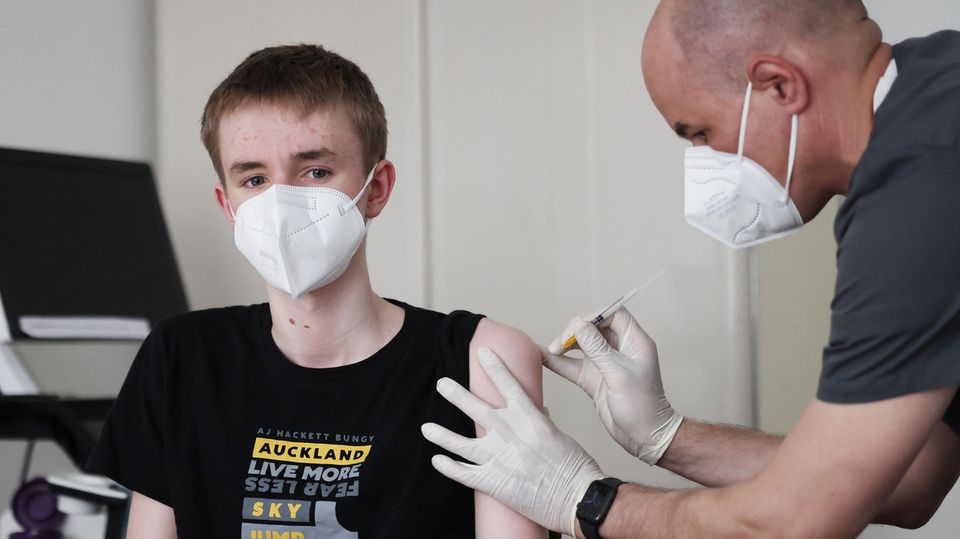
No information about the Delta variant
However, it is known that about 70 out of a million vaccinated children between the ages of 12 and 17 can develop heart muscle inflammation (myocarditis), i.e. one in 14,000. For Covid-19, the number is six times higher, with one in 2200. “So it means: the above study cannot be interpreted as saying that Covid-19 is harmless to children and that vaccination would pose a higher risk. Severe side effects are extremely rare in both infection and vaccination, ” Watzl classifies. However, the study helps to better assess the danger that most children would have from Covid-19. “And that is just very low, only lower with vaccination.”
The question remains whether the results can be transferred to the delta variant of the coronavirus. The study period ran until the end of February, but the delta variant only spread from the UK to Europe in the spring.
Source: The Lancet

